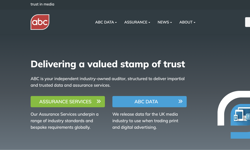
The main changes can be summarised as:
- The VAT exemption for the importation of goods valued less than €22 has been removed
- All goods imported to the EU will be subject to VAT
- Although VAT will be applicable on ALL goods, duty will only be payable on imports with a value of over €150
Historically, magazines, journals and periodicals have been treated as printed matter in the postal world – not goods – and while the UK was part of the Free Market, British businesses did not need to consider VAT and duty to other member states. Obviously, this has now changed and all UK businesses selling into the EU need to understand the new rules and their implications.
It is clear to us that magazines and periodicals do come under the scope of the new regulations and will now attract VAT on importation into the EU, despite what you may have been told by other mailing partners. It simply may be that they do not have the capability or expertise to handle this for you. Also, it is vital that sample data is generated and tested before distribution as missing information may result in the item being rejected by Customs or charged VAT on delivery.
The focus of the EU Post Offices and Customs authorities may not initially be on magazines and periodicals, but we believe it would be unwise to gamble on which countries will or will not be strictly applying the rules and when. There is also the possibility of retrospective VAT claims by Customs authorities.
For the time being, whilst publishers are in the process of becoming compliant, we believe there should be enough leeway with Customs around Europe. However, we must stress that not becoming compliant is not sustainable in the medium to long term.
We must stress that not becoming compliant is not sustainable in the medium to long term.
There are solutions available to assist publishers. One is the Import One Stop Shop (IOSS) for Business-to-Consumer transactions of €150 or less. It is a Delivery Duty Paid (DDP) scheme where the customer pays the VAT at the point of purchase.
In summary, publishers register for the service in an EU member state and are allocated an IOSS number that allows them to trade into all member states. The publisher charges the appropriate VAT rate in the customer’s country at the point of purchase. They make a VAT return in their EU country of registration, breaking down the VAT payable in each of the EU member states for the period and paying the balance due. When the goods enter the EU, the IOSS number is referenced on the documentation to ensure no VAT is payable on the movement of the goods, nor by the end customer.
This solution requires additional data to process, such as IOSS number, Customs Harmonised System (HS) code and the Unit Price (in Euros). For magazine and periodicals, this should be the value of the package, not the subscription amount. Eg, if an annual subscription is 120 Euros and the publication is issued monthly, the data required is one twelfth of the subscription value (10 Euros).
If a publisher does not wish to use IOSS, or decides to carry on as normal, the items will be sent as Delivery Duty Unpaid (DDU), which means customers aren’t charged VAT at the point of purchase and must pay it and any administration fees, which could be high, prior to receiving the goods.
Given the inevitable confusion that follows a major change of regulations, it is likely these items will continue to get delivered without any charges being applied in the short term. However, this risk must be borne by the publisher and balanced against the possibility of poor customer service and reputational risk in asking customers to pay the VAT and any admin fees locally.
It’s clear that publishers must ensure they engage with tax experts to understand their obligations under the new regulations and must ensure their distribution suppliers are fully prepared to deal with the new data requirements and processes.
Air Business have commenced compliant mailings for customers who have their IOSS number, have generated the required data in the correct format, and are working with many other customers on testing sample data. We’ve held client forums and liaised with the PPA on supporting publishers with these changes, and are happy to share our insights in more detail.
(Air Business is unable to give advice on taxation issues as it is not a taxation expert or consultancy, and strongly recommends you seek appropriate, independent tax and legal advice if you are unclear how the new regulations will affect your business.)

About us
Established in 1986, Air Business is a market-leader in global mail, fulfilment, distribution and subscription management.
Our unique end-to-end service portfolio includes subscriber acquisition and marketing strategy, worldwide postal and courier distribution, digital and mail fulfilment solutions and warehouse and freight logistics, all with exceptional and seamless customer service at its heart.
Tel: +44 (0) 1727 890 600
Email: hello@airbusiness.com
Website: www.airbusiness.com
Twitter: @AirBusinessLtd










